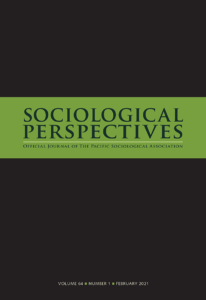
“The Effects of Selective and Indiscriminate Repression on the 2013 Gezi Park Nonviolent Resistance Campaign” in the journal Sociological Perspectives.
Abstract

We investigate the differential effects of selective and indiscriminate repression on the rate of protest actions during the nonviolent resistance campaign in Gezi Park, Turkey, in 2013. After deriving theoretical expectations about how and why these forms of repression will influence protest actions, we test them with protest event data that were collected from a major local newspaper and subsequently validated through a comparison with two other independent Twitter datasets. Utilizing a Poisson autoregressive estimation model, we find that selective repression, as measured by the number of arrested activists who were detained while they were not demonstrating, decreased the rate of protest actions. Meanwhile, indiscriminate repression, as measured by the frequency of the government’s use of lethal and nonlethal violence against protesters during demonstrations, increased the rate of protest actions. Our findings support prior research on the influence of indiscriminate repression on backfire outcomes. They also provide evidence for the impact of selective repression on movement demobilization through the removal of opposition activists. Finally, the targeted arrest strategy of selective repression that was employed in the Gezi campaign has implications for the feasibility of the strategic incapacitation model of protest policing.
Tijen Demirel-Pegg is an Associate Professor in the Department of Political Science, IU School of Liberal Arts at IU Indianapolis

